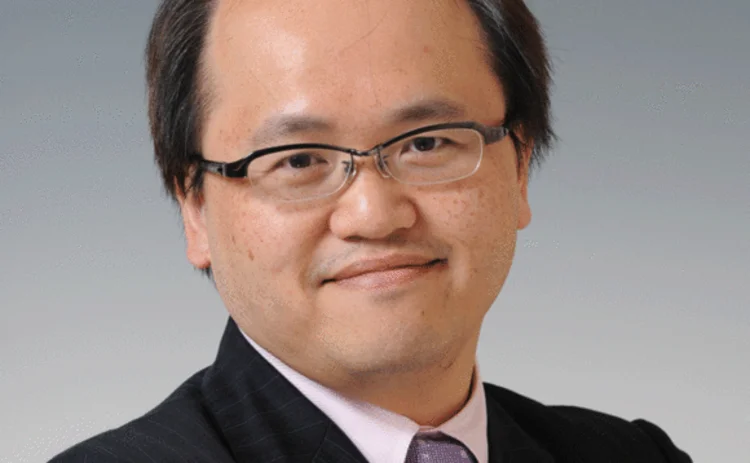
Japan house of the year: Societe Generale
Structured Products Asia Awards 2017: Attention to detail pays off for the derivatives house in the Japanese market

There have been many ups and downs in Japan over the last 12 months, with the surprise election of Donald Trump as US president among several events that prompted swings in risk appetite among Japanese investors. Societe Generale extracted the maximum from its structuring abilities to provide clients with product offerings that were designed to respond to an unpredictable and see-saw environment.
In June 2016, markets worldwide lost around $3 trillion as investors reacted to the UK’s vote to leave the European Union, soon after which oil prices rebounded after the Organization of the Petroleum Exporting Countries voted to cut supplies. In November, the US election led to optimism over a ‘Trumpflation’ trade on global equity markets, but just a few months later a rising of the Japanese yen weighed on the performance of Japanese stock prices.
“It has been a year of unexpected results, and investors moved from wanting more or less exposure to assets that would compensate them for the long-term period of low interest rates,” says Hideaki Takahashi, head of sales, global markets at Societe Generale Japan. “Sometimes that has meant taking equity exposure to enhance returns, but we have also looked to boost yields further by adding rates, foreign exchange and credit.”
Japanese structured equity businesses struggled in the early part of 2016, as the benchmark Nikkei drifted lower on the back of strong currency that undermined Japanese exports. However, the US election led to mass redemptions and reinvestment in structured equity notes and worst-of plays that investors hoped would provide significant upside. The bank’s private placement business quintupled over the subsequent quarter, compared with the same period the previous year.
One trend worthy of attention was the rising investor demand for range-driven views through variations on knock-in, knock-out notes.
“Our aim was to create products that enabled investors to leverage their views on where and how far they thought the market was going to move, and also to offer protection on sharp downward moves through early redemption, which appealed to those who had been burned by the 25% drop in the Nikkei in the previous year,” Takahashi says. “We saw demand for our proprietary worst-of index and for notes that offered partial protection on the downside up to a certain barrier. Knock-out features gave investors higher returns in a yield product, which was of course a key advantage in the ultra-low interest rate environment.”
At the end of 2016, Societe Generale estimated it had the largest individual share of the Japanese structured equity private placement market.
“Its pricing is consistent, it regularly proposes new ideas and structures and it is flexible in accommodating our needs,” says one investor.
The bank’s subsidiary Lyxor Asset Management provides the bank with a rich source of index strategies, which Japanese investors leveraged over the past year to create tailor-made return profiles in areas including cross-asset allocation and global technology growth sectors. One note in demand was delta-1 exposure to Lyxor’s Neo-Futuristic World Fund.
This year, Societe Generale took the innovative approach of sitting down with Japanese asset management firms to collaborate on index composition.
“We are a major provider of indexes in Japan, and we took a major step forward this year in inviting asset managers to advise on the allocation of some indexes, which has generated a lot of interest,” says Takashi.
In the fixed-income space, the biggest impact on the market came from the Bank of Japan’s decision early in 2016 to move its benchmark rate into negative territory, which by mid-July has pushed the 10-year government bond yield to as low as –0.28%. One impact of low domestic rates was to push institutional investors into overseas investments, and in particular US Treasuries. However, that move came unstuck when the yen rose against the dollar earlier this year, amid concern that President Trump would not deliver on his economic programme.
“The foreign exchange risk has proved to be tricky, and was not helped by the fact that currency hedging costs have been very high,” says Arnaud Davoust, head of financial engineering at Societe Generale Japan. “This year, we have launched initiatives supported by our repo trading desk to enable institutional investors to get the yield they need through asset exchanges with us for dollar cash or Japanese equities, or by issuing credit-linked notes.”
The bank is a leading player in the Japanese variable and fixed annuity space, providing product advisory, variable annuity funds, investable indexes, valuation, risk management and hedging solutions to the top players in the market. The low-rate environment has driven demand for foreign-currency denominated products, and the bank has worked with insurers to issue hybrid Australian or US dollar annuity products with mixed fixed and variable features based on a customised Societe Generale investment strategy, creating a yield pickup.
“What makes us different in this market is that we can provide assets for both the fixed and variable side, which means that in the hybrid products instead of getting a fixed return you can get some equity exposures combined with a capital guarantee,” says Davoust. “We were happy to see big demand for those products last year.
Only users who have a paid subscription or are part of a corporate subscription are able to print or copy content.
To access these options, along with all other subscription benefits, please contact info@risk.net or view our subscription options here: http://subscriptions.risk.net/subscribe
You are currently unable to print this content. Please contact info@risk.net to find out more.
You are currently unable to copy this content. Please contact info@risk.net to find out more.
Copyright Infopro Digital Limited. All rights reserved.
As outlined in our terms and conditions, https://www.infopro-digital.com/terms-and-conditions/subscriptions/ (point 2.4), printing is limited to a single copy.
If you would like to purchase additional rights please email info@risk.net
Copyright Infopro Digital Limited. All rights reserved.
You may share this content using our article tools. As outlined in our terms and conditions, https://www.infopro-digital.com/terms-and-conditions/subscriptions/ (clause 2.4), an Authorised User may only make one copy of the materials for their own personal use. You must also comply with the restrictions in clause 2.5.
If you would like to purchase additional rights please email info@risk.net
More on Awards
Market liquidity risk product of the year: Bloomberg
Bringing clarity and defensibility to liquidity risk in a fragmented fixed income market
FRTB (SA) product of the year: Bloomberg
A globally consistent and reliable regulatory standardised approach for FRTB
Best use of cloud: ActiveViam
Redefining high-performance risk analytics in the cloud
Best use of machine learning/AI: ActiveViam
Bringing machine intelligence to real-time risk analytics
Collateral management and optimisation product of the year: CloudMargin
Delivering the modern blueprint for enterprise collateral resilience
Flow market-maker of the year: Citadel Securities
Risk Awards 2026: No financing; no long-dated swaps? “No distractions,” says Esposito
Pricing and analytics: fixed income – Quantifi
Quantifi delivers high-performance, transparent and adaptable pricing and risk analytics for fixed income and credit markets
Derivatives house of the year: Citi
Risk Awards 2026: Rev up, RWAs down, as US bank gets back on track (with added XiNG and XiP)







